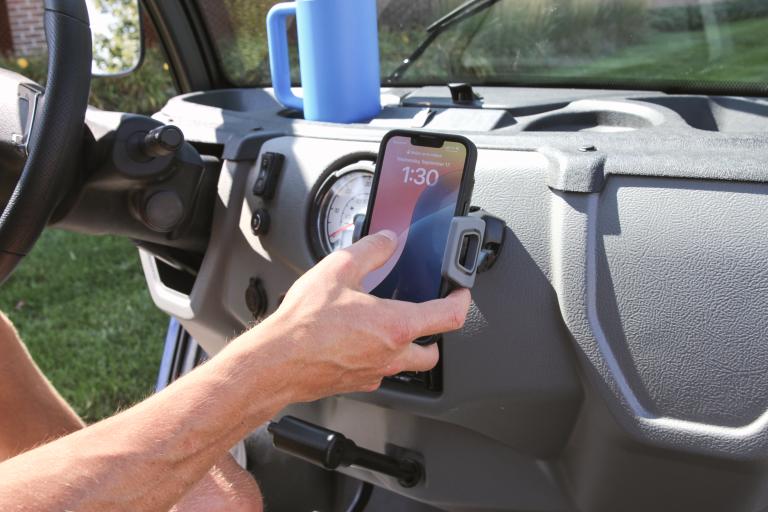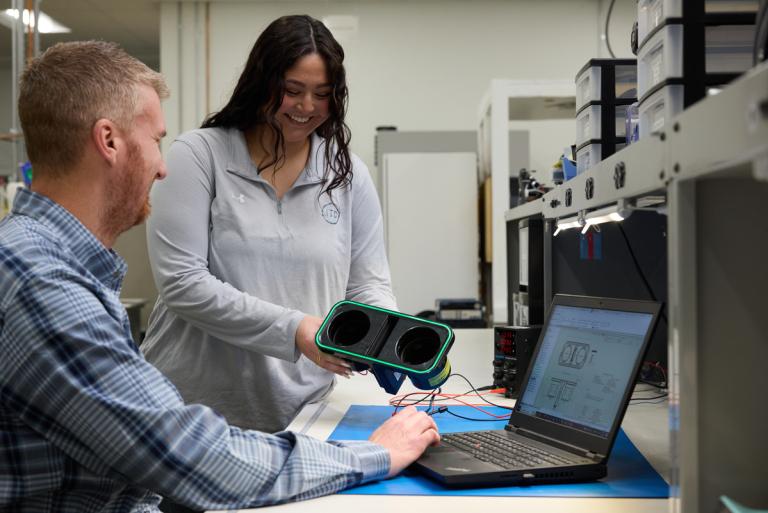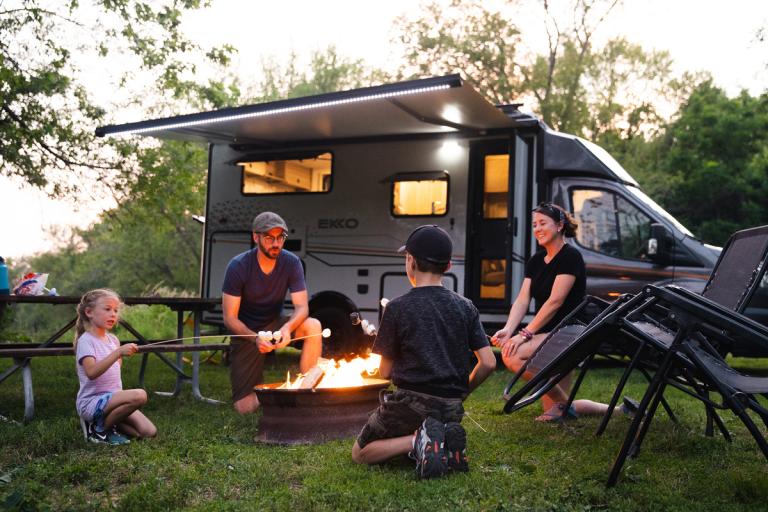
One of the outcomes of confronting a global pandemic has been the realization that for many, alternative ways of working and living are possible. For others, a remote lifestyle is even preferable to achieving a better work-life balance.
For those with the ability and desire to go fully remote, a growing number are deciding to hit the road full time. Read on to learn about this shift, why many newcomers are choosing to explore the nomadic lifestyle, and how it has impacted the RV industry.
Changing Attitudes
As of 2021, only 1.5% of all RVers lead a full-time RV lifestyle, but advancements in tools, shifts in remote work attitudes, and changing family goals across the country indicate that this number will soon be on the rise.
Prior to the Covid-19 pandemic, less than 10% of the U.S. labor force worked entirely remotely, but over the course of the lockdown, nearly half of all workers made the switch to work from home. Looking ahead, projections estimate up to a quarter of our country’s workforce plans to remain fully remote in the long term with many more expecting to work remotely for a significant portion of their time.
These shifts not only create new possibilities for workers and families in the RV community, but they’re broadening the perception of full-time RVers beyond the traditional workamping and seasonal roles that have been a predominant income source for these individuals.
The demand for remote work in graphic design, marketing, writing, customer service, and other knowledge industries is at an all-time high. Globally, 16% of companies operate fully remotely as of 2021, while over 4.7 million people work from home at least half of their week in hybrid arrangements.

As of April 2021, over 60% of working parents want to work remotely full-time, and 32% prefer a hybrid work model. For many parents, the idea of working from the road is both appealing and possible when it previously hadn’t been an option.
With more parents choosing to work from the road, we’ve also seen a rise in remote schooling, or “roadschooling.” For some, what began as a temporary fix when districts opted for virtual learning has become a long-term arrangement with families enjoying the flexibility and benefits of fully remote schooling while hitting the road for adventure-learning, too.
Benefits to Living and Working from an RV
Many families choosing to go fully remote hope to achieve a healthier work-life balance and expand their family’s experiences and educational opportunities. Beyond these goals, there are many other factors driving the decision to live and work from an RV.
Reduced bills and more financial freedom
For those looking to lower their monthly spending, embracing the full-time RV lifestyle can be more affordable than traditional lodging arrangements. Selling off unnecessary possessions and a personal residence, or completing the end of a lease, will reduce the number of bills one is responsible for each month. Without a mortgage or rent payment and monthly utilities like gas and electric, full-timers can begin a mobile lifestyle with only a few recurring bills.
Travel the country while earning a living
One of the most desirable perks to the fully remote RV life is the opportunity to travel more than is possible with a traditional 9-5 career. Additionally, full time RVers love the flexibility of a day-to-day remote schedule and find it offers a higher quality of life and overall work-life balance.
Travel the country in order to earn a living
Beyond merely gaining the ability to work and travel simultaneously, many Americans are finding ways to incorporate RVing and the nomadic lifestyle into their work directly. The expansion of the RV industry and lifestyle over the last several years has cultivated an ever-growing network of professional writers, bloggers, photographers, and content creators, all devoted to documenting the RV life and helping others get started.
Broadened worldview
Adding travel to homeschooling or virtual learning creates opportunities for students to live a life of limitless field trips. Full-time RVers with families feel that road life allows children to make connections between what they’re reading about and what they’re seeing on visits to national parks, museums, and historical sites. They also find it offers a more flexible learning schedule and lets students move at a faster or slower pace fit for their individual needs.
Finding support in a growing community
As remote work and roadschooling increases in popularity, the community and resources continue to diversify. There’s a growing support network of families sharing their stories, lessons, and tips across blogs and social media, most of which have no plans to return to traditional schooling or in-person work any time soon.
Impacts on RV Products & New Features
The growing Work from the Road movement has rippled across the RV industry as workers adapt to a new lifestyle. Because RVs can have restricted spaces, manufacturers are introducing new products and features to help families and remote workers capitalize on the layout inside a mobile office and living space.
Here are just a few examples of new and changing products across the industry:
- ITC’s new MOD Leg Table System allows customers to mount their table in multiple positions. It can act as a dining table, desk, or workspace, seamlessly changing positions to make space for a variety of needs.
- RV manufacturers are creating models and adaptations specifically outfitted for the full-time RV worker. Features in these mobile home offices include ergonomic seating options, improved WiFi, and soundproofing.
- For workers who still have a “homebase” but are embracing their RVs as mobile offices, converted camper vans are increasing in popularity, allowing customers to take off for a week at a time while maintaining their work schedule and needs.
Many RV manufacturers were exploring more extensive remote-work options prior to Covid-19, but the pandemic expedited these plans across the industry. With trends in remote work projected to maintain relevance as workers continue to work from home, the RV home office market is expected to continue evolving with these customer needs.






